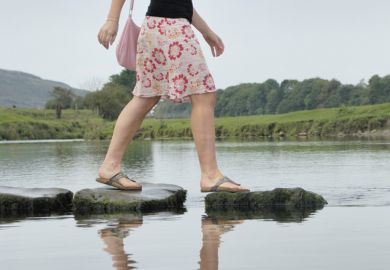In a case of attitude trumping aptitude, researchers have found that male students consider themselves smarter than their classmates – even if their grades suggest otherwise.
A study of Arizona State University students has found that women are more likely than men to underestimate their own intelligence. Male students with average marks tended to rate themselves cleverer than two-thirds of the class, while women assessed their abilities in the middle rank.
The researchers found that the typical male was more than three times as likely as the average female to judge himself more academically able than the person working right beside him. And students with high opinions of their own talents also reported taking a prominent role in group assignments.
The findings, published in the journal Advances in Physiology Education, come from more than 200 biology undergraduates who were quizzed on their “academic self-concept” at the end of a seven-week physiology course.
Lead author Katelyn Cooper said that the research had exposed stark “gender-based differences in self-perception”, in a discipline where female students routinely outnumbered males. While other studies had revealed similar patterns, this was the first to examine undergraduate students’ perceptions about their own intelligence compared with that of their classmates.
Ms Cooper said her team suspected that the differences had been exacerbated by the advent of blended learning and an increasing emphasis on group work, because it gave students more opportunities to compare their abilities.
But with previous research suggesting that female students were less likely to take “dominator” roles in groups, the new findings pointed to a vicious cycle. Women, already disinclined to take the lead, could have their self-perceptions further deflated by comparing themselves with their overbearing male counterparts.
Ms Cooper, a doctoral student in ASU’s Biology Education Research Lab, said that the solution was not to abandon group work. But she said that academics needed to recognise the gender differences, structure courses accordingly and stress that “often the quietest students have the best ideas”.
“If instructors can be more explicit that it is important to hear from all students, [those] with low academic self-concept may be encouraged to participate, which may in turn boost their confidence about their own abilities.”
Register to continue
Why register?
- Registration is free and only takes a moment
- Once registered, you can read 3 articles a month
- Sign up for our newsletter
Subscribe
Or subscribe for unlimited access to:
- Unlimited access to news, views, insights & reviews
- Digital editions
- Digital access to THE’s university and college rankings analysis
Already registered or a current subscriber?









